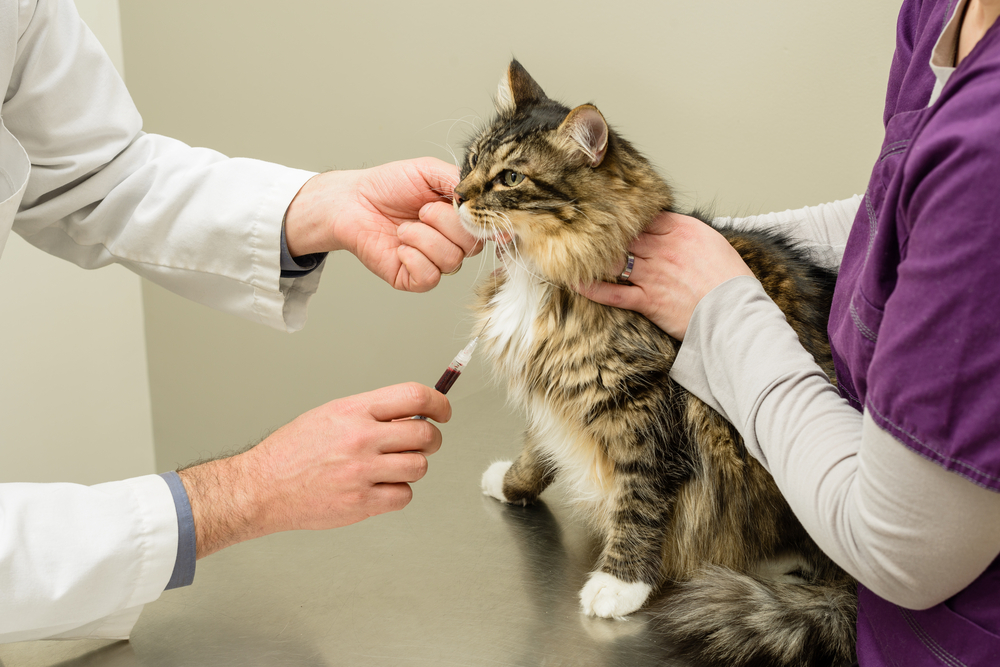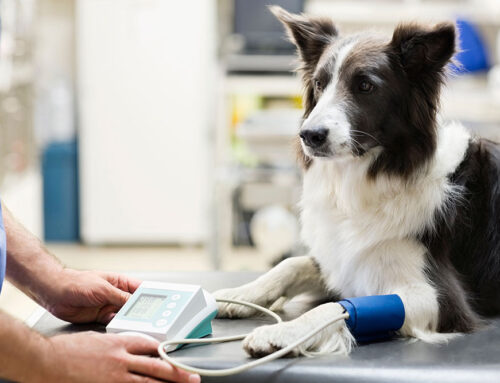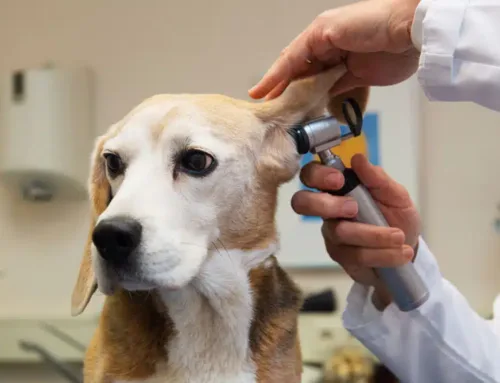Everyone has a busy life, and we can all easily forget about routine prevention our dogs and cats need. But, as the old adage says, an ounce of prevention is worth a pound of cure. Here are five resolutions you can make for you and your pet for the rest of 2020.
#1: Ensure your pet is vaccinated
A vaccine works by introducing a modified-live or killed virus into your pet’s body. The viruses do not cause illness—rather, the immune system recognizes the virus molecules as foreign invaders and mounts a response. Special immune cells create antibodies that will combat each virus and protect the body in the case of actual infection. There are two types of vaccines:
- Core vaccines — These protect your pet from highly infectious and potentially fatal viruses, such as rabies, distemper, and parvovirus in dogs, and feline viral rhinotracheitis, calicivirus, and panleukopenia in cats. The American Animal Hospital Association (AAHA) recommends that core vaccines, except rabies, be given every two to four weeks until your pet is 16 weeks old. If she is older than 16 weeks at the time of initial vaccination, she should receive a booster in two to four weeks. The next vaccination should be given one year later, and then every one to three years.
- Non-core vaccines — These vaccines, for Bordetella and leptospirosis in dogs, and feline leukemia in cats, for example, are recommended based on your pet’s risk profile and exposure. A booster is required two to four weeks after the initial vaccination, and then yearly afterward.
Vaccines are the easiest and most cost-effective way to keep your pet safe from infectious diseases, so don’t let those reminder cards go unheeded.
#2: Clean your pet’s teeth
Our pet’s teeth often are “out of sight, out of mind,” until her breath gets unbearable. Unfortunately, significant damage may already have occurred by then. Dental disease develops when plaque accumulates and hard tartar forms. If the tartar is not removed, bacteria grow underneath the gumline, causing inflammation, infection, and abscesses, which can be extremely painful, as well as lead to heart, kidney, and liver disease.
Daily at-home tooth brushing, together with regular professional dental cleanings performed under anesthesia, are the best protection against dental disease. While your pet is anesthetized, we can perform a thorough oral exam, a cleaning that reaches all the nooks and crannies of the teeth and underneath the gumline, and take dental X-rays to check the health of the tooth roots.
#3: Prevent heartworm disease in your pet
Heartworms are transmitted to your pet when she is bitten by an infected mosquito. If allowed to become an adult, the heartworms will reproduce in the heart’s blood vessels, eventually causing congestive heart failure, and potential death. Heartworm medications prevent the heartworms from becoming adults, and a variety of oral and topical medications are available to suit every owner’s preference. Heartworm prevention is by far the best option to keep your pet safe, because treatment for established heartworms lasts several months, and requires strict exercise restriction, multiple injections, and oral medications, and can be costly.
#4: Protect your pet from illnesses caused by fleas and ticks
Fleas and ticks are more than annoying parasites—they can also cause significant illness and disease in dogs and cats, but monthly preventives against both parasites are available.
Fleas transmit tapeworms, and can also cause flea allergy dermatitis. Once entrenched in your home, they are almost impossible to remove, because the tiny eggs are hidden in the carpets and furniture, and on your pet. Flea preventives are vital for your pet, along with diligent laundering and vacuuming, although a professional pest service is best.
Ticks, which come in various species, are found all over the U.S. and cause serious, life-long illnesses, including anaplasmosis, babesiosis, Ehrlichiosis, Lyme disease, Rocky Mountain spotted fever, and tick paralysis.
#5: Ensure your veterinarian has your pet’s baseline blood work results

It’s easy to understand why blood work is important for your pet when she’s not feeling well, but it may seem unnecessary when she is healthy. However, test results from when your pet is healthy are a valuable resource for your veterinary team if your pet gets sick. Subtle changes in your pet’s baseline values, such as her liver and kidney values, can help our team diagnose problems, and prescribe necessary medications. They can also be a guide if your pet needs to undergo procedures requiring anesthesia.
We know your pet’s health and wellness is your top priority. It’s also ours, and our veterinary team is dedicated to ensuring that your pet is protected against every preventable infectious disease and illness. Do your beloved companion a favor, and resolve to do the same. Call our office to set up a wellness examination, including vaccinations and preventive medications, for your pet.








Leave A Comment